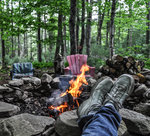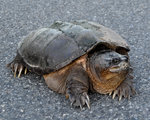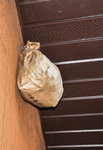 Narrowsburg
NarrowsburgLight Rain Fog/Mist, 43°
Wind: 8.1 mph
 Narrowsburg
NarrowsburgDear new neighbors: I’m guessing that winter was rough for many of you, having made the (possibly rash) decision to relocate from fill-in-the-blank to the Upper Delaware River region within the …
Stay informed about your community and support local independent journalism.
Subscribe to The River Reporter today. click here
This item is available in full to subscribers.
Please log in to continue |




.jpg)
Dear new neighbors: I’m guessing that winter was rough for many of you, having made the (possibly rash) decision to relocate from fill-in-the-blank to the Upper Delaware River region within the last year or so. Undoubtedly, your life-altering move was based on the pandemic, the economic crisis, the political climate or possibly on a spur-of-the-moment whim. How’s that working out for you?
Like it or not, you live here now, and I hope that you aren’t cowering in a corner of your rustic-chic mountain cabin, valiantly soaking up country charm as the woods come alive with shrieks, howls and squawks, to say nothing of the endless hammering of woodpeckers.
There are a lot of “firsts” in store, some exciting and others that you could probably live without, but life in the country is different than city-dwelling, and it is futile to attempt jamming a square peg into a round hole. You may think that you’ve “got this,” but you’re undoubtedly in for some surprises. In a sardonic effort to be helpful, I have compiled a few tips that might make your transition a little smoother, may soothe your ruffled feathers, or even send some of you packing. I have two words for the faint of heart: buh-bye.
You may be anxious (like me) to put on a plaid shirt, strut around all life-in-the-woodsy and burn stuff in your fire pit, but there are strict rules to follow regarding that, as well. Small, enclosed campfires using charcoal or untreated wood are allowed, but people should never leave these fires unattended and must extinguish them.
Note: Open burning of debris is the largest single cause of spring wildfires in New York State. Burning garbage or leaves is prohibited year-round.
Bears are attracted to food sources that have a scent. Generally, it is not bird feeders that attract a bear to a backyard; it’s other things that have an attractive scent such as barbecue grills, compost piles, fruit trees and pet food. That said, a bear often stumbles upon a bird feeder while pursuing other food sources and will go for it. Trust me on this.
Hint: Spice up the seed. Adding liberal amounts of red pepper to a birdseed mix can discourage bears that don’t like the hot flavor, though some may become used to the taste over time. Sprinkling pepper over the ground or around the feeder can also help deter sensitive bears.
Note: All bears get used to the taste of red pepper and they’re not sensitive at all. My advice? Just let the birds fend for themselves as mother nature intended, or watch ‘em flit around through some binoculars.
Note: Resist the urge to “rescue the poor thing” or take selfies with the newborn. You’re in their house now.
Note: If it’s injured, please contact a wildlife rehabber or vet immediately.
Note: Snapping turtles earn their moniker rightfully, so consider this your only warning. Folklore claims that “a turtle crossing the road in front of you is a sign of good fortune to come.” Probably to discourage pioneers from moving said turtle. Just slow your roll, folks.
Note: One of my favorites is a DIY trick to keep wasps (coming to eaves under a roof near you) away from your decks and backyards. Take a paper bag and fill it with more paper until it looks like a hive. Hang it wherever you want to deter the wasps. They will think another group already created a hive and leave the territory alone. There are those who say it’s “just folklore” and doesn’t work, but from my personal experience, folklore exists for a reason and they are mistaken. We’d like to keep our pristine environment chemical-free, so do me a favor and try it.
7, Those pretty flowers you just put out will die. The same holds true for the veggies you planted too soon, regardless of the nursery happily allowing you to purchase them. Here in the mountains, it’s not uncommon to experience a hard frost through the next two months and those in the know won’t be surprised if we see more snow. You’d be wise to refrain from in-ground planting until Memorial Day. Start your seedlings indoors and be patient—you’ll thank me later. As for all of ya’ll who thought it would be fun to get baby chicks, how’s that working out for you?
Note: Snakes, foxes, eagles, coyotes, and more wildlife await. There’s even something called a fisher cat that you do not wanna pet. Remember, you’re not in Kansas anymore, so keep in mind that you’re living in a wildly different environment than you’re accustomed to. There’s a steep learning curve, but I have faith in you. One more thing: Please, please obey the speed limit. There might be goats in the road.
Welcome to the neighborhood!
Fun Fact: Folklore claims that the fisher cat makes a terrible high-pitched scream that sounds like a “woman being murdered” either when they are mating or attacking another animal. The internet is rife with postings and stories about “fisher cat screech.” You’re welcome!
For more information about fire safety and prevention, visit www.dec.ny.gov/lands/42524.html.
For info on Pennsylvania’s burn ban and fire retractions, visit www.dcnr.pa.gov.
Comments
No comments on this item Please log in to comment by clicking here